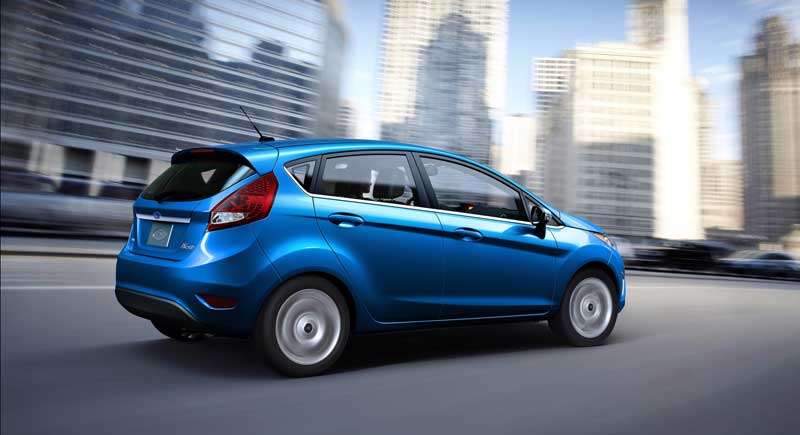Recent Articles
Popular Makes
Body Types
Gas-Powered Cars That Get 40 MPG

In May, Ford announced that the 2011 Ford Fiesta equipped with the 6-speed automatic transmission will be rated at 40 miles per gallon on the highway.� In addition, the Eco version of the Chevrolet Cruze is soon expected to join the 40-mpg club.� Look Ma, No hybrid!� These gas-powered cars are delivering better than 40 miles per gallon at highway speeds with traditional automotive technology.
Hybrids Still Rule, But for the Money...
Consider Ford's advertising tag line for the Fiesta brags: "The Fiesta gets 40 highway miles per gallon. That's more than 21 hybrids."� Ford's spinmeisters are correct that most hybrids, including expensive models from BMW, Lexus and Mercedes, as well as the mid-market Toyota Camry Hybrid, don't reach 40 mpg on the highway.� What Ford omits is that not a single one of Ford's own hybrids hit the 40-mpg mark on the highway. �
The company also doesn't highlight the city numbers for the Fiesta-29 mpg for the automatic version.� That's a far cry from the Fusion Hybrid's 41-mpg rating in the city or the Toyota Prius's 51 miles to the gallon-but it doesn't diminish the accomplishment of these gas-powered fuel sippers.� After all, the Fiesta starts at about $14,000, half as much as the Prius. The more apropos comparison is other compacts. On the highway, the Ford Fiesta is 5 miles a gallon better than Honda Fit and 4 miles a gallon better than Toyota Yaris. This bump up to 40 mpg and beyond represents the beginning of a new era of high-mpg affordability.
An Emerging Trend
A handful of hybrids break 40 mpg in the city, and one or two clean diesel cars get above 40-mpg on the highway, but there are only three vehicles that have a combined average highway/city mileage above 40: the Toyota Prius, Honda Insight, and Honda Civic Hybrid.
That's going to change.� As regulators push federal efficiency standards to 35.5 mpg by 2016, and as high as 60 mpg by 2025, you'll begin to see more conventional and affordable gas powered cars join hybrids in this echelon.
To get a better handle on this new 40-mpg benchmark, we reached out to John German, who was Honda's manager of Environmental and Energy Analyses for more than a decade and is now a senior fellow and program director for the International Council for Clean Transportation.
Do you expect 40-mpg gas-powered cars to become a trend?
Absolutely. Upcoming improvements to internal combustion engines, transmissions, aerodynamics, tire rolling resistance, and lightweight materials will enable large numbers of vehicles to surpass 40 mpg without hybrids or diesels. By 2016 all small cars like Fiesta, Fit, Yaris, etc., and most compact cars like Civic, Corolla, and Focus should be over 40-mpg on the highway. A few mid-size cars might make it as well.
What are the economics of making these types of cars, rather than hybrids and diesels?
The improvements will be done at moderate cost-less than a thousand dollars for a smaller car. Of course, hybrids also provide a huge boost in city fuel economy, which is more important for most customers. But the improvements coming to the gasoline engine at moderate cost will make it harder to justify the additional cost of a diesel engine.
Can the same strategies that enable 40-mpg gas cars be applied to hybrids, pushing them to 50 or even 60 MPG?
Absolutely. Hybrids provide a relatively constant percentage efficiency improvement over a baseline vehicle. So, any engine improvements and load reductions-aerodynamics, tire rolling resistance, vehicle weight-will have similar benefits on both standard gasoline and gasoline-electric hybrid vehicles.